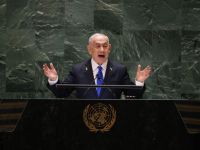(AFP, ANKARA) - Turkey has decided to drop a controversial multi-billion dollar project for the country's first nuclear power plant citing financial shortages, Turkish Prime Minister Bulent Ecevit announced Tuesday.
"We have decided to take up the nuclear plant project after the economic stability programme is finalized," Ecevit said in reference to an IMF-backed three-year anti-inflation programme.
Citing a report by Turkey's state-run Atomic Energy Agency (TAEK), Ecevit said that it was "unnecessary" and "damaging with regards to the economy" for Turkey to turn towards nuclear energy at present.
"The project could have serious adverse impacts on our economic stabilty programme," he said. "We do not have sufficient funds at the moment to finance the project."
The prime minister recalled an earlier warning from the country's fiscal authorities that foreign borrowing for the project could trigger a new rise in Turkey's chronic inflation, which has recently been on the decline.
But Ecevit underlined that the cancellation of the tender did not mean Turkey had given up on nuclear energy projects in the future.
"It is not right to rule out nuclear energy, but it will be appropriate to allow time for the development of a new generation of nuclear plants," he said, adding that Turkey would focus on natural gas and hydroelectric power plants as well as other alternative energy sources in the meantime.
Ecevit quoted the TAEK report as saying that Turkey might have to resort to nuclear energy in 15 to 20 years when a shortage of natural gas is expected in the world.
He said that during that period, the cost of a nuclear plant was expected to be reduced by 25 percent, while the lifespan of a reactor would increase from the current 30-40 years to 40-50 years.
Technological developments could also allow the use of materials less dangereous than uranium in the production of nuclear energy, he added.
The tender for the construction of a nuclear plant near Akkuyu on Turkey's Mediterranean coast was launched in 1997 with three international consortia -- Westinghouse of the United States, AECL of Canada and NPI of France -- bidding for the project.
Turkey had previously postponed the ill-fated eight times, asking the bidding companies to extend their offers every time.
The project was under fierce criticism from neighbouring countries and environmentalists on the grounds that the proposed site is only 25 kilometres (15 miles) from a seismic faultline.
Opposition to the plant grew after a strong earthquake, measuring 6.3 on the Richter scale, rocked the neighbouring region of Adana in 1998, killing more than 140 people.
© Agence France Presse 2000
© 2000 Mena Report (www.menareport.com)







